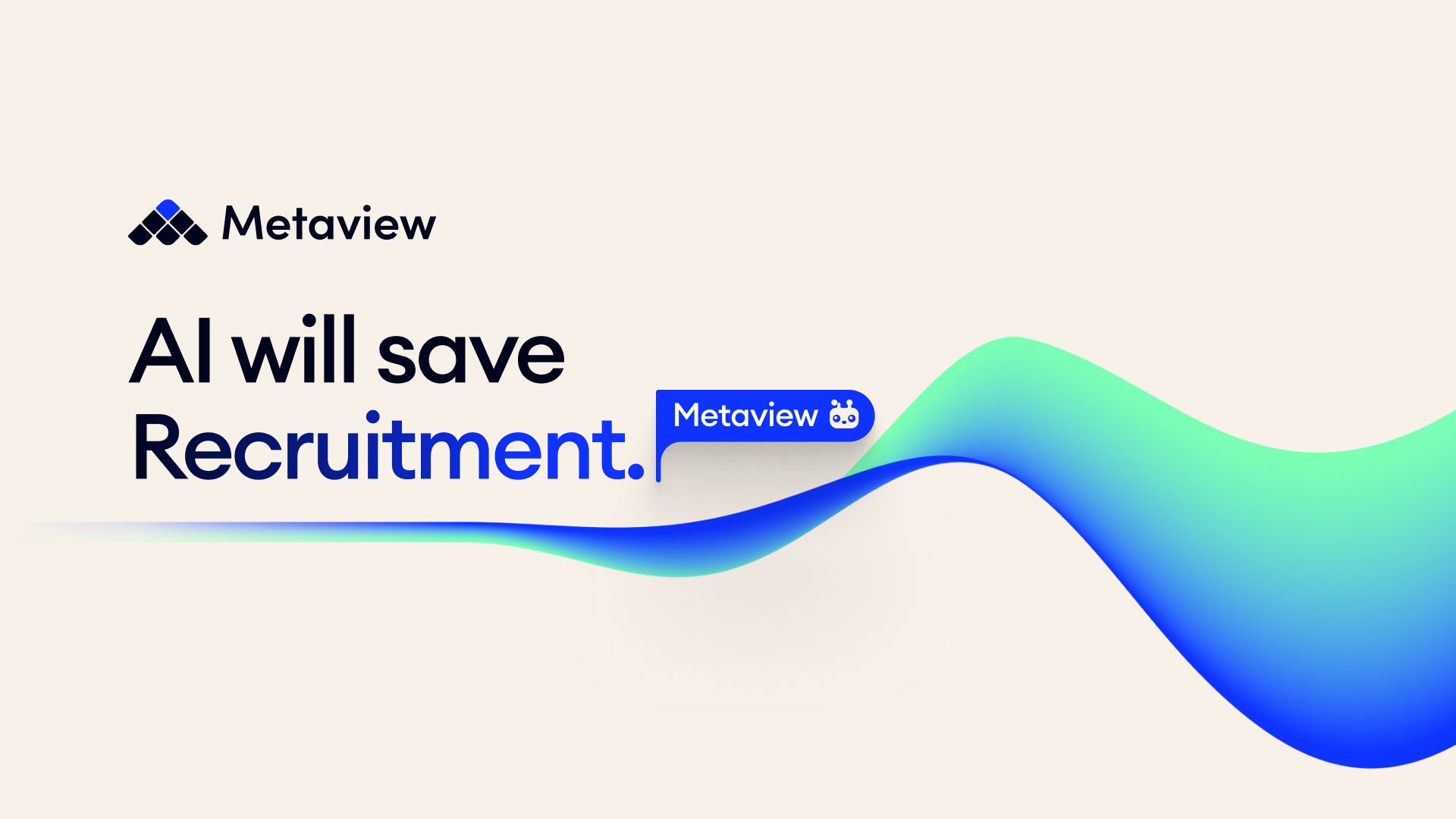With headlines swirling about Drake’s AI clone producing original music and AI co-pilots predicted to write 80% of code in the near future, it’s easy to think that AI will be a death knell for human creativity and economic value.
But I’m here to urge you not to fall for the doom mongering. AI actually presents a massive opportunity for the most human-centric professions—perhaps none more so than Recruitment.
Because Recruitment is so deeply people-focused is the very reason why I believe it’s ripe to be a positive beneficiary of AI. Recruiters are the ones we trust to make nuanced human judgements, advise hiring managers on critical decisions, and persuade candidates to join our organizations. This fundamentally-human, highly-nuanced work is what is furthest at risk from replacement by AI.
Instead of taking recruiters’ jobs, AI will save recruiters from the grind they hate—scheduling, note taking, chasing hiring managers for feedback—and give them more time to focus on the things they’re best at. AI will create a world for recruiters where human interactions and relationships are king, where admin is delegated to the robots, and where hiring processes are awash with insights.
AI means less drudgery and more zone of genius
By removing the drudgery involved in recruiting, AI will free up time for more of the things that we love about it: understanding, influencing, and persuading people. The type of work a lot of folks have long considered their real zone of genius.
What do I mean by drudgery? All of the painful, low-leverage tasks that lie between planning and performing. If you're trying to be a high performer, you want to spend as much of your time either devising strategic, efficient plans or flawlessly executing those plans for maximum impact. But what happens in practice is that we often spend much of our time on everything in between. AI is going to move us to a world where that's flipped. We’ll spend much more time on planning and performance rather than all of the grind in between. As a result of this bimodal way of operating, we’ll see more specialization within Recruitment too.
To bring this to life, here are a few examples of what an AI-enabled future looks like for recruiters:
- Less time spent scouring the internet for candidate profiles and more time helping decode the business’ hiring needs based on their expert understanding of the market.
- Replacing superficial connections with a vast array of candidates with deeper connections with fewer, more relevant candidates.
- Less time corralling and nagging interviewers to submit their feedback, and more time actually strategically advising interviewers and hiring managers.
Let’s deep-dive into the example of what we do here at Metaview. Rather than furiously typing notes during interviews, trying to catch everything a candidate is saying, recruiters can rely on Metaview’s AI to take perfect notes for them. The AI takes care of summarizing key points then recalling that information and filling out objective feedback fields. The recruiter is freed to focus on adding their own subjective assessment and using their judgement to pull out the insights they know hiring teams care about. They can focus on going deep with the candidate and pulling out maximum signal. It’s a perfect case of the machine taking care of the undifferentiated, time-consuming tasks that anyone could do (transcribing, summarizing) so that the human can focus on higher-order work.
Increased efficiency will mean increased demand for recruiters
So by now it’s hopefully clear that AI will save recruiters from drudgery and supercharge their efficiency. You might be thinking: if we see such massive productivity gains, won't that mean that the world needs fewer recruiters? The short answer is no.
This is a classic example of what’s known as Jevons paradox: As you increase the efficiency of a resource, it actually leads to overall increases in the usage of that resource. Let's look for an example of what I mean in a totally unrelated field: electricity usage. Over time, we've leveraged new technologies to make light bulbs increasingly efficient. You might think that means people will reduce the amount of electricity they use. In reality, it’s the opposite: It makes light more accessible, so more people use more light bulbs more of the time.
What does this mean for recruiting? Organizations will understand that the best, AI-enabled recruiters are so efficient and good at what they do that they’d rather hire them than try to do the work of a recruiter themselves. Recruiters will have more leverage as they increasingly focus on the actual act of hiring and much less on the admin and the grind that surrounds it. Recruiters that master and apply these tools will be able to do their job more effectively. They will fundamentally represent better value for money for organizations, and they'll thrive because of it. Put simply, the best recruiters will be better than ever, and will therefore represent better value for money, and demand for them will increase.
Avoidance is not a winning strategy
So, that’s my take. Even if you don’t agree with everything I’ve outlined above, there is one thing I can say with certainty: avoidance is never a winning strategy in the face of technological revolutions like the one we’re in now.
If you find yourself during your working day thinking “A robot could do this task,” then you should be aware that very soon a robot will in fact do that task. So you need to find those truly differentiated areas where you're using critical thinking and influencing other people. In doing so, you’ll future-proof your value as AI transforms what it means to work in Recruitment.
The only thing to fear with AI is getting left behind. So seize this opportunity to join—not resist—the AI revolution. I personally can’t wait to see what the future of Recruitment holds.


